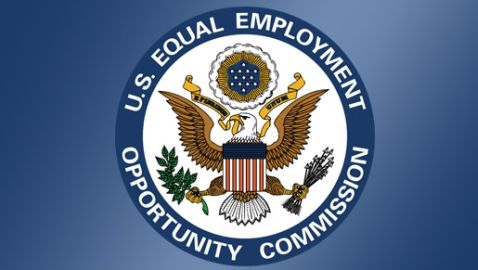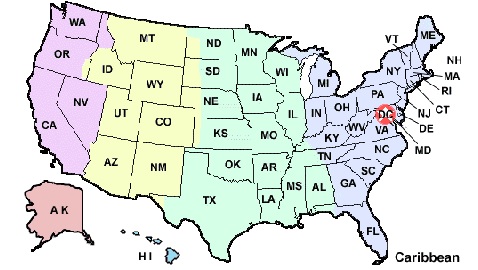It’s ‘International Update Your Resum? Month’ – Native Times
Post Views 3September marks the 12th annual celebration of “International Update Your Resume Month.” The observance, originated by Career Directors International in Melbourne, Florida, provides job seekers with a proactive approach toward obtaining the next step in career growth. The ‘Career Summary’ is a brief statement of who you are, where you’re ‘coming from,’ and what skills and expertise you have to contribute to an organization. To grab the reader’s attention, you’ll need five or six targeted lines oriented toward the benefits and contributions you offer as a professional,” states Myers. Although individuals should be as specific as possible throughout the entire resume, this tip should be exercised bmost in the “Professional Experience” section.Hundreds of Cherokee farmers received settlement payments this week from the U.S. Department of Agriculture for $50,000 each. The payment stems from the Keepseagle Settlement, which alleged that between 1981 and 1999 the USDA failed to provide technical assistance and, in some cases, denied or charged higher interest rates to Native Americans for farm loans.Hundreds of Cherokee farmers received settlement payments this week from the U.S. Department of Agriculture for $50,000 each. The payment stems from the Keepseagle Settlement, which alleged that between 1981 and 1999 the USDA failed to provide technical assistance and, in some cases, denied or charged higher interest rates to Native Americans for farm loans. “This is something we have diligently worked on for 15 years,” said Principal Chief Bill John Baker. “It was based on the federal government not fulfilling their promises to Cherokee farmers. For years Councilor Joe Byrd and I repeatedly brought up the issue in Washington D.C., and they finally recognized the problem and fixed it. These funds will provide much-needed assistance to Cherokee farmers and ranchers and have a major economic impact on the Cherokee Nation.” Baker reached out to Cherokee County banks and financial institutions to allow recipients to cash or deposit their settlement checks. He said there has been some alarm at so many recipients walking into banks with checks for such large sums of money. “I hope all of our local banks recognize these checks are legitimate and work with our farmers to process their funds,” Baker said. Eleven-hundred Native American farmers in northeast Oklahoma filed against the USDA, more than anywhere else in the country, according to Alicia Seyler, an Oklahoma tribal representative who assisted with USDA loans through the Intertribal Agricultural Council. The $760 million Keepseagle v. Vilsack suit was settled in 2010. Those who received checks in August were part of the Track A claims. Claimants with outstanding USDA loans will be notified at the end of October whether some or all of the debt will be relieved. More severe claims, Track B, will be notified by mail by Oct. 30.The Cherokee Nation filed a civil action against the Department of Interior Wednesday over a decision to grant another tribe’s land in trust application. Filed in the Northern District Court of Oklahoma, the tribe and its business, Cherokee Nation Entertainment, are asking that the Department of Interior rescind and renounce a July 30 approval of the United Keetoowah Band of Cherokee Indians’ land in trust application for 2.03 acres in Tahlequah, Okla., where the tribe’s casino has been in business for more than 25 years and generated more than $5 million in wages last year. That decision was handed down hours before the casino was scheduled to close under an agreement with Oklahoma Attorney General Scott Pruitt. “The department’s bootstrap reason – that it is the ongoing conduct of an illegal gaming operation that provides the basis for a finding of a ‘need’ for a proposed trust acquisition in order to cure the illegality of the gaming – is arbitrary and capricious, an abuse of discretion and contrary to the law,” Cherokee Nation Attorney General Todd Hembree wrote in Wednesday’s filing. In the approval letter, acting Assistant Secretary for Indian Affairs Michael Black also wrote that the United Keetoowah Band and Cherokee Nation have equal jurisdiction across 14 counties in northeastern Oklahoma. “The secretary’s ‘former reservation’ conclusion is contrary to an unbroken line of prior departmental rulings and to a series of decisions by this court,” Hembree wrote. “This conclusion, however, was the basis for the department’s unlawful decision to approve the acquisition of 2.03 acres of land located within the last treaty boundaries of the nation…for the use and benefit of the United Keetoowah Band Corporation.After 16 years of litigation, the historic $3.4 billion Cobell settlement agreement has once more been delayed in litigation – even as thousands of class-action members await their share. On Aug. 20, the deadline to appeal a May ruling against her claims by a lower federal court, Sisseton Wahpeton Oyate member Kimberly Craven filed for a writ of certiorari, or cert petition, with the United States Supreme Court as an objector to the Cobell settlement agreement. Three others – Rosebud Sioux Tribe member Charles Colombe, Three Affiliated Tribes member Carol Eve Good Bear, and Cheyenne River Sioux Tribe member Mary Lee Johns, will also file as objectors as it stands. On Aug. 17, the high court granted the three an extension to appeal until Sept. 22. The requested delay will allow Colombe, Good Bear and Johns to review Craven’s filing before filing their own joint motion with the Supreme Court. The late Elouise Cobell began a class-action suit in the latter 1990s whereby and through litigation a historical accounting of the mismanagement of funds by the U.S. Department of the Interior was requested. Craven’s cert petition contends, “After more than fifteen years of litigation originally intended to achieve an adequate accounting for Indians holding Individual Indian Money accounts (trust-land accounts administered by the Interior Department), the (lower) courts approved a settlement agreement with pervasive intra-class conflicts.” Tucked into the Cobell settlement is an Indian Education Scholarship fund of up to $60 million and tribal trust-land management claims of $1.9 billion, along with compensation for Individual Indian Money account holders or their heirs. These nearly $2 billion awards further eroded the $3.4 billion settlement. “I’ve questioned the constitutionality of the settlement since it was first announced,” Craven told the Native Sun News. “I’m especially troubled by the creation of the second class, which includes issues which were never part of the quest for an (IIM) accounting. Most of Indian country has no idea why and what they are being paid for.” As for the IIM accounting, Craven states in her cert petition that under the Federal Rules of Procedure (23) “No person shall be deprived of property without due process of law; nor shall private property be taken for public use without just compensation” and that due process of law requires adequate counsel representation for all parties. Craven explains conflicts between the named class members (class representatives), counsel, unnamed parties (absent class members) and any future class members. In her petition, Craven seeks the court to decide “the quantum of ‘evidence’ necessary to show an intra-class conflict.” She further seeks a decision as to “whether exorbitant incentive awards to class representatives compromise their ability to independently oversee counsel.” She says a decision finding just that “would significantly strengthen the enforcement of the adequacy requirement ñ protecting the interests of future generations of class members.” Craven states intra-class conflicts occurred when “four Class Representatives requested incentive awards and received $2.5 million.” She argues this conflict is not in line with federal procedure, which grants all class members adequate counsel and that incentive payments cloud the ability of class representatives to adequately represent the absent class. Additionally, she says counsel may be quick to settle, as per the settlement they stand to receive $99 million. In her petition, Craven explains the representatives “claimed they were owed over $10.5 million more in ‘litigation expenses’ that included Representatives’ personal rent and public relations related expenses,” while absent class members are to receive roughly $1,000 each. In further clarification, she said the representatives will take home “eight times more money” than other class members whose rent was not compensated for. “Ms. Cobell requested $10 million, but alone received a $2 million incentive award; Mr. LaRose received a $200,000 award; and the two remaining named plaintiffs took in $150,000 each.” Craven compares the proportion of incentive payments in the Cobell settlement to incentive payments in other class actions. She cites a study by Eisenberg & Miller that states: “The average award per class representative was $15,992, and the median award per class representative was $4,357,” which seems a far cry from tens of millions of dollars awarded to Cobell class representatives. Furthermore, she claims the U.S. Court of Appeals for the District of Columbia’s “opinion creates a circuit split on the question of how to treat incentive payments.” As legally defined by federalism.typepad.com, a circuit split is a “disagreement between one or more federal circuit court of appeals on an issue concerning federal statutory or constitutional law.” Craven cites several sources in her cert petition that explain, “There is ‘no consistent standard for evaluating and approving special compensation for named plaintiffs.’” In comparison to other suits, “some 28 percent of class action settlements include incentive payments to the named plaintiffs, and those payments are usually ‘modest,’ in the range of a few thousand dollars,” she further cites. She also claims “lower incentive awards are unlikely to push class representatives into agreeing to deals that are bad for the remainder of the class.” As a result, Craven says the absent class (unnamed parties) were denied just compensation and adequate representation, adding that the absent class had to settle for “rough justice” as Congress refused to make funds available for an adequate accounting of the mismanaged trust accounts of each member of the absent class. As stated in court documents, Congress decided through years of litigation “an adequate accounting to each class member was prohibitively expensive.” Seemingly, “rough justice” and fair justice become synonymous as no one knows exactly how much money was mismanaged and how much each individual account is owed. Some recipients will receive far less than they are actually owed. Conversely, some will receive far more than they are actually owed. Fair becomes ‘unbalanced’ and rough becomes ‘chasmal,’ as one of the other three Cobell settlement objectors points out. Charles Colombe along with Carol Eve Good Bear and Mary Lee Johns are at this point considering filing a brief in the Craven objection to the settlement. Colombe confirmed by phone Aug. 24 that they have obtained an extension to file until Sept. 22. “We have a dilemma here: a fairness dilemma. I believe there should be a settlement, and I support the government position on that,” he told Native Sun News. However, Colombe says the tribes are benefiting from settlement agreements which he supports, but the “individuals are left with less money.” As for the historical accounting of IIM account holders he said, “I am sure (the government) is able to do an accounting. I think the accounting alone would cost more to do than the settlement.” According to the three-party extension court documents, Colombe, Good Bear and Johns filed the extension petition as the deadline for their Supreme Court cert petition would have expired on Aug. 20. As Craven was also concerned for an opt-out in the settlement for IIM account holders and heirs, these petitioners asked in their extension petition “whether a mandatory class,” as the settlement resolves all claims, “can be created in a settlement action for monetary relief without an opt out provision?” In referring to the extension petition, Colombe told NSN the parties are not sure what or if they may file a brief with the Supreme Court appeal. The three appellant’s joint petition claims, “The (cert petition) will address an important question regarding the lower courts’ evasion of this court’s (Supreme Court) clear and unequivocal rulings on the essential element of commonality in class action proceedings.” However, the petition states it was also filed as the parties’ attorney, David C. Harrison, is also involved in a complex 42-year-old water rights litigation, which made him unable to meet the Aug. 20 deadline to file in the appeal. In the meantime, the Social Security Administration issued an emergency message stating it “would exclude distributions of tribal trust fund settlements from a member’s countable income and resources for purposes of determining eligibility” for receiving certain public benefits, according to a press release from Fredericks Peebles & Morgan LLP posted on www.kawnation.com. The press release says, “In 2005, the Ute Indian Tribe represented by Fredericks Peebles & Morgan, LLP filed suit against the United States for mismanagement of the Tribe’s trust assets and when the Tribe received the settlement funds in March 2012, it distributed the settlement funds on a per capita basis to each of its tribal members. The settlement funds were awarded to the Tribe to settle ongoing litigation against the United States regarding the government’s mismanagement of tribal trust assets.” According to the release, the trust fund settlement will not be counted “as income and resources for purposes of determining eligibility for SSI (Supplemental Security Income) or Medicare Part D.” Additionally, “In May of 2012, the Ute Indian Tribe advocated for an exemption of these funds from program eligibility with the Social Security Administration, the State of Utah, Utah state agencies, and several other federal agencies on the basis that a one-time per capita distribution should not affect public assistance currently received by the most vulnerable members of the Tribe’s community.
Read the full article here:
It’s ‘International Update Your Resum? Month’ – Native Times



 Unemployment Claims Surge in Response to Furloughs
Unemployment Claims Surge in Response to Furloughs  New Senate Unemployment Plan Raises Concerns
New Senate Unemployment Plan Raises Concerns  Dunkin Donuts to Expand and Hire
Dunkin Donuts to Expand and Hire  EEOC Discrimination Lawsuit Statistics Show Little Change
EEOC Discrimination Lawsuit Statistics Show Little Change  Industrial Park in South Point, Ohio Adding Hundreds of Jobs
Industrial Park in South Point, Ohio Adding Hundreds of Jobs  All But Seven States Get Better Unemployment Rates
All But Seven States Get Better Unemployment Rates  Top 10 Most Popular Granted Career Advice Articles in 2020
Top 10 Most Popular Granted Career Advice Articles in 2020  Merck Cuts 8,500 Jobs
Merck Cuts 8,500 Jobs